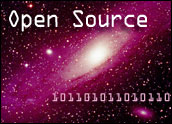Magic Software Enterprises (Nasdaq: MGIC) debuted the Enterprise Edition of its V.8 Linux development environment Thursday at the LinuxWorld Expo in New York City.
The software package, ported to Linux in collaboration with Mainsoft Corp., enables e-commerce professionals to quickly and economically develop online business solutions for the Linux open-source operating system.
Magic Enterprise Edition V.8, available in single and multi-user editions, includes dynamic generation of HTML, Java support, secured Internet transaction processing capabilities and visual applications partitioning.
Web-based training and limited technical support are offered with a purchase of the product, which currently sells for $299 (US$).
The Magic of Linux
In September 1999, Magic introduced its Linux Enterprise Server v.8.3, which enables e-commerce developers who are working on other platforms to port their existing business solutions to Linux. The product, in a single-user edition, is distributed with the Red Hat 6.1 Linux OS package.
Magic also produces eMerchant, an e-commerce product that supports database technologies by Informix and Oracle, and features transaction processing, order entry and profiling capabilities along with advanced security features.
According to a Magic company statement, “eMerchant adheres to all Web Authorization and Control standards (WAC) by uniquely identifying each customer who logs in, and limiting application access based upon specific sets of user criteria.” The product, in its simplicity, is billed as an e-commerce solution “for idiots.”
“Magic eMerchant for Linux has the ability to store past customer orders, as well as present detailed and summarized versions of a customer’s purchase folders,” commented Magic CEO Jack Dunietz. “It also can make suggestions based upon a customer’s past history and a product’s current availability.”
Additionally, Magic is a board member of Linux International, a non-profit organization founded with a mission to advance international Linux acceptance. “As a member of the Linux International Board,” stated Dunietz, “we are committed to increasing the visibility for Linux as a viable alternative for companies worldwide who want to actively exploit the benefits of doing business over the Internet.”
About Mainsoft
In October 1999, Mainsoft moved its MainWin product — a Windows platform developed for UNIX — to the Linux open-source OS. MainWin for Linux allows users to re-host Windows NT applications on Linux.
The product, according to Mainsoft, will help to accelerate the growth of Linux in the enterprise space by expanding the development rate of business-critical applications available for the open-source environment. “Our decision to move into the Linux marketplace has been customer and market driven,” stated Yaacov Cohen, Mainsoft president and COO.
IDC Sizes Up the Penguin
The efforts of Magic and Mainsoft — along with industry titans such as Compaq, HP & IBM — to join in what has been inevitably dubbed “the Linux revolution,” are being measured. Companies are increasingly embracing Linux, a freely distributed UNIX-based operating system, according to a 1999 survey conducted by International Data Corp. (IDC).
Of the respondents polled, 13 percent currently use Linux within their organization, a striking increase over a mere two-year period, according to the IT analyst firm. Conducting a similar study in 1997, IDC found that Linux was “used by such a statistically small percentage of survey respondents” that a report could not be issued.
“This is an amazing level of growth,” observed Dan Kusnetzky, program director for the IDC operating environments and serverware services group. “Linux is emerging as a potential competitor to Windows and UNIX for some server applications.”



































Social Media
See all Social Media